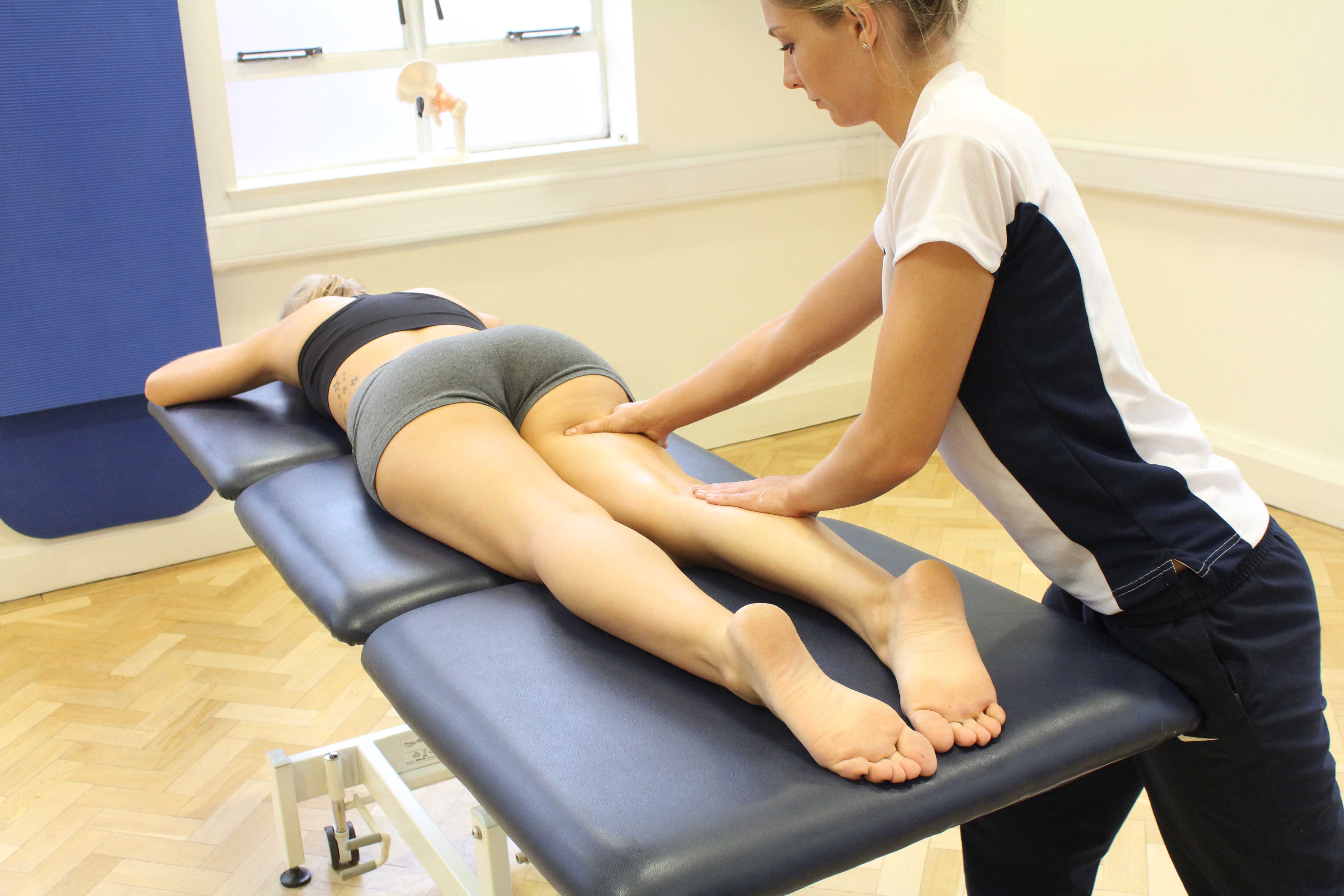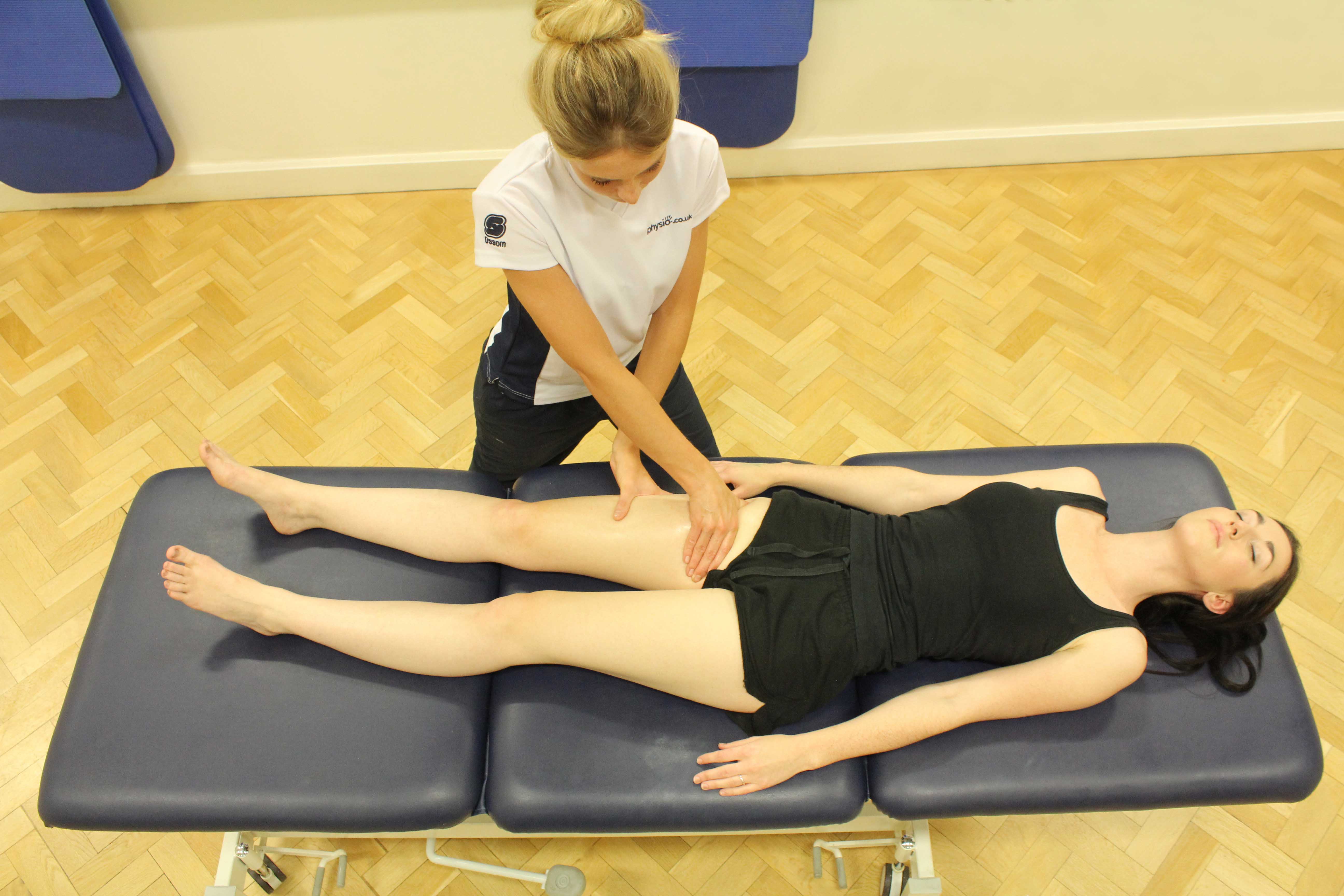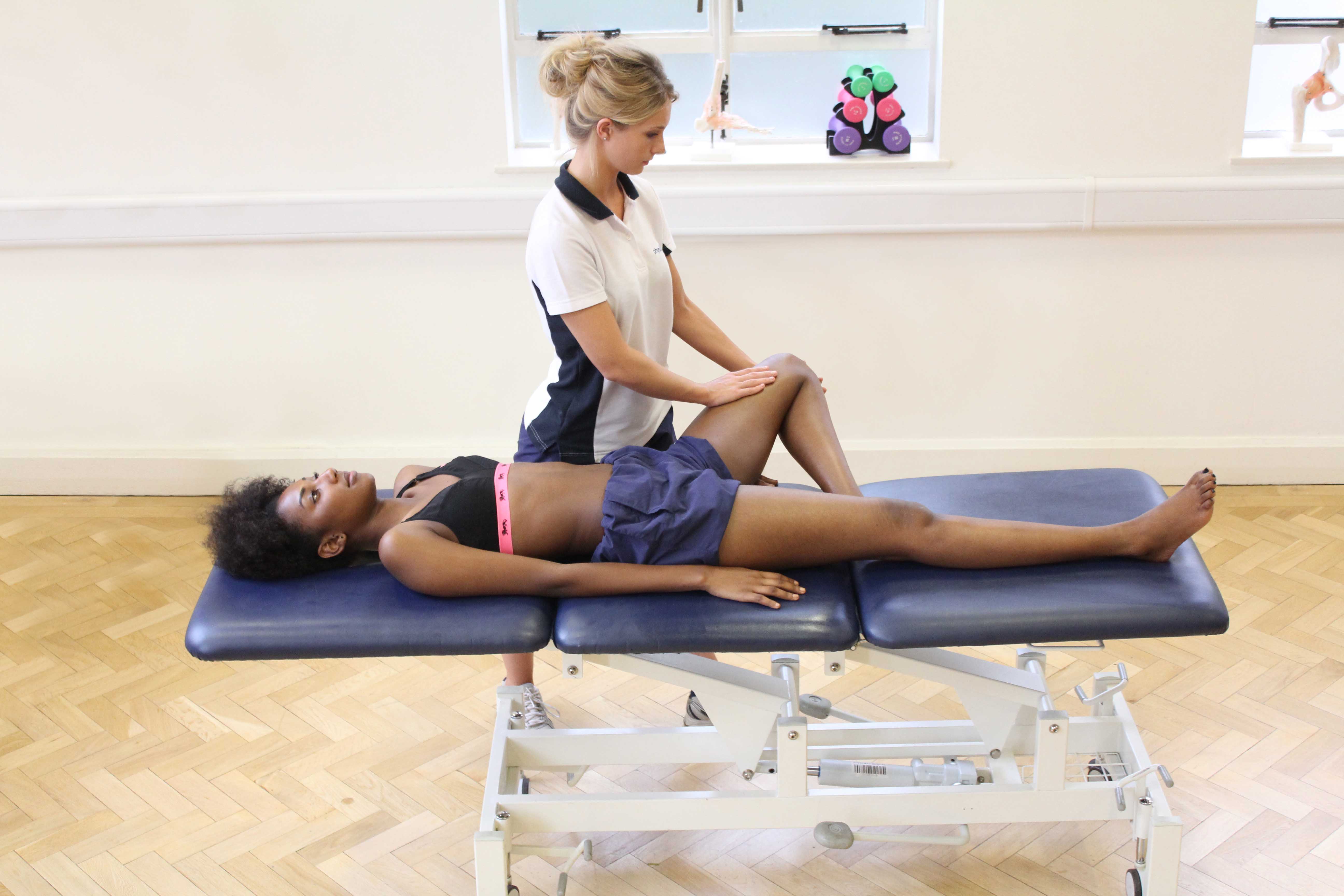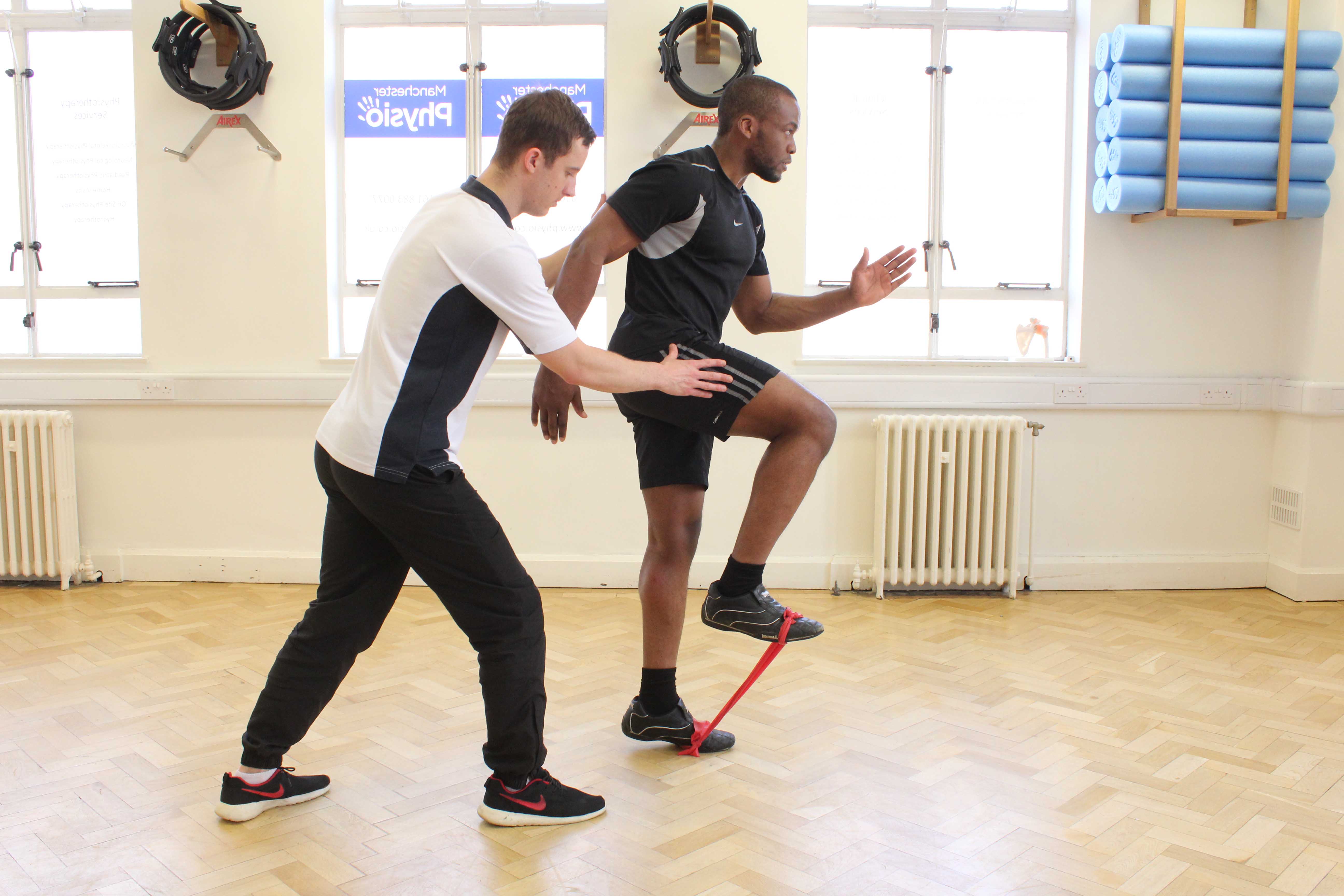 Above: Therapist performing passive stretches to the groin muscles
Above: Therapist performing passive stretches to the groin musclesWhat causes Gilmores Groin?
Gilmores groin can be caused by an overuse injury although it can occur suddenly. The groin area is highly susceptible to overuse injuries in sports involving kicking such assoccer and rugby.
Gilmores groin is a complex condition due to the many structures surrounding the injury site. The injury occurs in an area called the aponeurosis. This is where all the abdominal muscles, known as the transversus abdominus, internal obliques and the external obliquesall join to form the inguinal ligament.
Nerves and vessels pass through an archway which is located in the external oblique muscle. When a Gilmores groin injury occurs, the external oblique muscle fibres tear causing the archway toincrease in size. More tears in the oblique muscle fibres appear and lift up and away from the inguinal ligament, which leaves the transversus abdominus unsupported.
Conservative treatment is usually undertaken initially, however, in some cases, surgery is required if the patient is unable to returnto pre injury level.
 Above: Soft tissue massage of the muscles and connective tissues around the groin by an experienced therapist
Above: Soft tissue massage of the muscles and connective tissues around the groin by an experienced therapistWhat symptoms caused by Gilmores Groin can physiotherapy help with?
Physiotherapy treatment can help with the following symptoms arising from a Gilmores Groin injury:
- Pain around the groin region
- Decreased strength in muscles
- Decreased range of movement
- Decreased function
- Decreased balance
- Tightness in certain muscle groups
- Reduction in sporting performance
How is Gilmores Groin diagnosed?
Gilmores groin is diagnosed following an in-depth subjective and objective assessment carried out by a health professional. If Gilmores groin is suspected, an MRI will be ordered to confirm the findings and also to assess if there is any other damage to surrounding structures which is quite commonly the case
 Above: Stretch of the hip and groin muscles by experienced therapist
Above: Stretch of the hip and groin muscles by experienced therapistBenefits of physiotherapy for Gilmores Groin
Physiotherapy treatment for a Gilmores groin injury enables the patient to gain an excellent level of recovery. The physiotherapy treatment programme will focus on:
- Restoring strength
- Restoring range of movement
- Restoring function
- Return to sporting activities
What would physiotherapy treatment for Gilmores Groin involve?
Physiotherapy treatment for Gilmores groin focuses on:
- Core strengthening exercises
- Groin strengthening exercises
- Hip stretching exercises
- Sport specific rehabilitation
Core strengthening exercises
The core muscles act as a stabiliser for the pelvis and trunk. These muscles include the transversus abdominus and multifidus. The transversus abdominus muscle acts like a corset and stabilises the trunk whilst the multifidus muscle stabilises the spine by attaching to the vertebrae.The physiotherapist will teach you how to contract these muscles together to increase the stability of the spinal column. The physiotherapist will then gradually progress the difficulty of exercises you perform whilst maintain this contraction.
 Above: Progressive strengthening hip exercises supervised by experienced therapist
Above: Progressive strengthening hip exercises supervised by experienced therapistGroin strengthening exercises
It is important to strengthen the groin muscles also known as the adductors. The physiotherapist will demonstrate how to target both the long and short adductor muscles making sure the muscle group is strengthened throughout.
Hip stretching exercises
Maintaining flexibility around the hip joint will avoid future injuries and ensure the muscles are functioning effectively. The physiotherapist will demonstrate how to effectively stretch the muscles surrounding the hip and progress when necessary.
Sports specific rehabilitation
The physiotherapist will demonstrate sport specific drills in order for you to gradually build up the strength required for you to return full time to your sport.
How do I arrange a physiotherapy assessment for Gilmores Groin?
If you or someone you know is presenting symptoms of Gilmores groin then you can either email us at ………………………….or call us on ……………….to arrange an appointment with one of our specialist musculoskeletal physiotherapists.
Summary
Gilmores groin can be a debilitating injury, especially for sports enthusiasts. The key to recovery is to receive a comprehensive rehabilitation programme. Our musculoskeletal physiotherapists at Liverpool Physio have extensive experience in treating people who have suffered from Gilmores Groin. To make an appointment with Liverpool Physio you can contact us via email at …………………………. or call us on ……………………….

 0330 088 7800
0330 088 7800





































